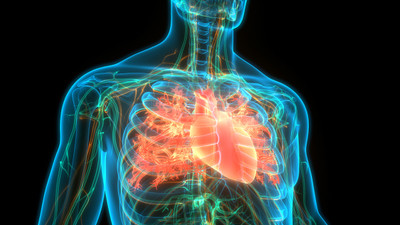Neem for Heart Health: Prevention & Treatment of Clots, High Blood Pressure, and more
Klaus Ferlow. HMH, HA, NEEM RESEARCH, Roberts Creek, B.C., Canada, on Feb 21st 2024

There are numerous heart disorders and ailments which can be improved with the right care and attention. These include heart failure, heart attack, angina, heart murmurs and rheumatic heart diseases. With heart disease on the increase around the world, I believe there is a need to find a herbal or natural cure for it. The venerable Neem tree (Azadirachta indica) may hold the answer!
Herbal medicine from the 4,500-year-old Neem tree has been used for centuries by Ayurvedic physicians to heal heart disease and its related problems. According to Sadhguru from the Isha Foundation, Neem is an evergreen tree with a well-earned reputation for being the most potent medicinal flora in the world. https://isha.sadhguru.org
In 75%of all Ayurvedic herbal medicine products, Neem is involved!! Is that not amazing?
Neem Helps Reduce Blood Pressure
Causes of hypertension include elevated heart rate, narrowing of the arteries, smoking, stress, bad eating habits, alcohol, and obesity. In Ayurvedic practice, Neem has been used successfully to control blood pressure.
This plant has been investigated and tested by researchers in Eastern medicine and found to be effective in helping to prevent, treat, and clear blood clots and lower blood pressure while reducing lowering cholesterol.
Neem leaf extract is where the active ingredients are located. Some constituents of the extract act as mild sedatives which reduce anxiety and emotional disturbances, thus relaxing the heart rate.
The heart needs a constant supply of oxygen, which is reduced if the arteries are narrowed or clogged. Narrow arteries result in not enough blood being supplied to the heart – resulting in coronary heart disease.
Compounds like nimbin, found in Neem leaf extracts, have antihistamine effects, which in turn help to dilate the blood vessels, lowering the blood pressure and thus reducing the stress on the heart. According to Wikipedia (https://en.wikipedia.org/wiki/Nimbin_(chemical)), “Nimbin is a triterpenoid isolated from Neem. Nimbin is thought to be responsible for much of the biological activities of neem oil, and is reported to have anti-inflammatory, antipyretic, fungicidal, antihistamine and antiseptic properties.”
These constituents of Neem help to delay the coagulation of blood, calm an erratic heartbeat, and reduce elevated heart rates. Neem herbal tea, tincture, or capsules also has a calming effect and helps in blood vessel dilation which lowers blood pressure.

Azadirachta Indica Oil or Neem Oil in a Glass Bowl and Bottle with Neem Leaves and Fruit
One study of the cardiovascular effects of Neem, published in the National Library of Medicine, concluded that A. Indica could be of benefit in coronary artery disease and arrhythmias. https://pubmed.ncbi.nlm.nih.gov/12500501/
Heart Disease Statistics
According to the American Heart Association:
- The underlying cause of death from cardiovascular disease (CDV) accounted for 931,578 deaths in 2021. Coronary heart disease (CHD) was the leading cause of death (40.3%), following by strokes (17.5%), other (CDV) 17.1%, high blood pressure 13.4%, heart failure 9.1%, disease of arteries 2.6%
- Cardiovascular disease accounted for approximately 19 million deaths worldwide in 2021.
These are really some grim statistics, which shows why heart disease is one of the leading causes of death, besides cancer
Words of Wisdom – “It is health that is real wealth and not pieces of gold and silver.” Mahatma Gandhi,1869 – 1944
Disclaimer: This material is only for educational purpose and should not be used to treat cure or treat disease, please contact your heath care provider.
Copyright@2024
 Klaus Ferlow. HMH, HA, NEEM RESEARCH, Roberts Creek, B.C., Canada,
Klaus Ferlow. HMH, HA, NEEM RESEARCH, Roberts Creek, B.C., Canada,
https://neemresearch.ca, www.worldneemorganisation.org, https://www.ferlowbotanicals.com
RESOURCE LIST
https://www.sciencedirect.com/Neem proves effective in treatment of cancer: https://www.sciencedirect.com/topics/pharmacology-toxicology-and-pharmaceutical-science/nimbin



